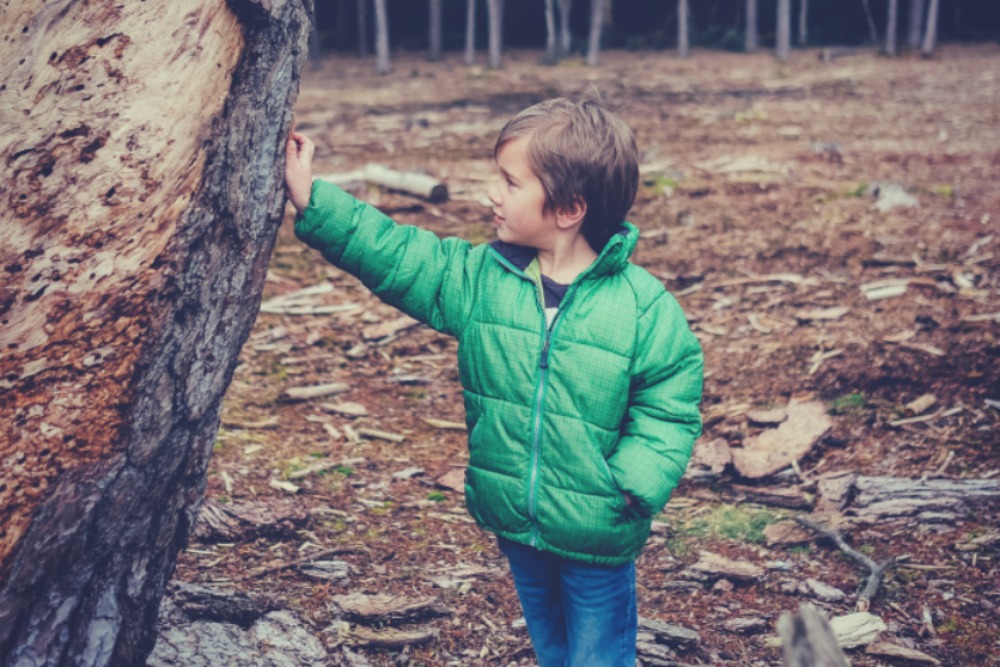It isn’t easy to be the parent of a child who is struggling. You may be feeling stressed and overwhelmed and unsure of what to do to help. You may be feeling frustrated and angry or worried and scared – or sad that life is so difficult for your child. You may be feeling so many different things, sometimes all at the same time.
How do I know this?
I know this because I’ve lived it.
I’m the mother of four children who experienced a variety of different mental health, neurodevelopmental, and behavioral challenges during their growing up years—and who are currently thriving as young adults.
I’m also the author of a brand new book (Parenting Through the Storm) that is based on interviews with over 60 parents who have faced similar challenges in their own lives. Those interviews taught me a lot about hope and strength and family resilience and what it takes to weather life’s storms.
Here are seven important lessons that emerged from my research – seven things other parents who have been there want you to know if you’re the parent of a child who is struggling.
-
You and your child are not alone.
It may sometimes feel that way at times, but the numbers paint a dramatically different picture. Nearly one in five children and teenagers are affected by a mental, emotional, or behavioral disorder that is serious enough to cause them problems at home, at school, in the community, or in their relationships with friends. That means a lot of kids are hurting – and a lot of families are hurting along with them – because when a child is struggling, the entire family is affected at the same time.
The good news is that there are other people who understand the challenges that you and your child are facing – people who have been there and who are eager to lend a listening ear, share non-judgmental advice, and offer practical support. You don’t have to weather the storm on your own.
-
Having a child who is struggling doesn’t make you a bad parent, just as being a child who is struggling doesn’t make your child a bad kid.
It just means that you’re going through a difficult time as a family: that this is the particular challenge you’re dealing with right now. Blaming yourself only makes the situation more painful and more difficult and it doesn’t do a thing to help your child. So instead of investing your precious emotional energy in an activity that is counter-productive at best, start treating yourself with self-compassion (which basically means treating yourself with the same amount of kindness that you would extend to a friend who is struggling).
-
It is important to reach out for help as soon as you begin to suspect that there could be a problem.
If your parent radar is telling you that something’s not right, pay attention to that feeling and start looking into having your child assessed. It’s better to err on the side of caution by checking things out than it is to ignore your all-powerful parent radar. Of course, it’s always possible that your child will be doing just fine by the time the assessment date rolls around – or that the clinician who assesses him will conclude that there’s no immediate cause for concern. What a great problem to have: discovering down the road that your child is actually doing just fine. It certainly beats the alternative: not getting in to see someone soon enough and watching your child (and your family) continue to struggle.
-
There are things you can do right now to start making things better for your child and your family. You don’t have to wait until you have a diagnosis or a treatment plan in place.
Some things that can make a world of difference for children (to say nothing of their parents) include
- using parenting techniques that bring out the best (as opposed to the worst) in your child—like learning how to validate your child’s feelings;
- becoming a strong advocate for your child and helping him to learn how to advocate for himself, too;
- working on your own coping and stress management skills and teaching those all-important skills to other family members, too;
- making a healthy lifestyle a priority for your entire family, which means eating well, exercising often, getting adequate sleep, and making time for fun.
-
You don’t have to be afraid of obtaining a diagnosis for your child.
A diagnosis simply provides a snapshot of information about your child. It doesn’t have to define or limit your child and it can provide you with valuable information that allows you to zero in the parenting strategies and treatment options that are most likely to be helpful to your child. A diagnosis also opens the door to all kinds of treatments and supports, including in-school supports that might not otherwise be available.
-
It is important to give yourself permission to continue to experience joy in your life, even when your child is going through a hard time.
Every parent deserves time off for good behavior, especially the parent of a child who is struggling. You can’t put your life and your happiness on hold until some unknown future day when your child is no longer struggling. You have to do the hard work of finding happiness in your life right now.
And it doesn’t have to be an either/or proposition. You can feel really sad about the difficulties that your child is experiencing while also allowing yourself to experience happiness in your life. So don’t feel guilty for doing things that give you pleasure, like meeting a friend for a cup of coffee or going for a walk on a beautiful day. Self-care isn’t an act of selfishness. It’s an act of self-preservation. And that’s an act of kindness toward yourself and your child. After all, no one needs a happy and healthy parent more than a child who is struggling.
-
Find shelter in the storm. Connect with other parents who truly understand so that you can help one another to weather the parenting storms.
If it takes a village to raise a child, it takes a village to support that child’s parent. And when a child is going through a difficult time, the need for support is even greater.
The good news is that it is possible to tap into that kind of support, if you’re willing to be open and honest about your family’s struggles. And when you take that step and open up to other people, you make it possible for other families to ask for and tap into the support they need, too.
Not quite sure how to get started? Odds are you already know at least one parent who has dealt with these types of struggles—or, at the very least, you know a friend of a friend.
Don’t feel comfortable reaching out to someone you know? Connect with the parent support and advocacy group (either community-based or online) that seems like the best fit for your family, given the nature of your child’s struggles. Peer support is magical. You won’t regret making that call!
About the Author: Ann Douglas
 Ann Douglas is the author of numerous books about pregnancy and parenting, including, most recently, Parenting Through the Storm: Find Help, Hope, and Strength When Your Child Has Psychological Problems (Guilford Press). She is also the mother of four children who struggled with a variety of mental health, neurodevelopmental, and behavioral challenges during their growing up years and who are currently thriving as young adults. Find out more about Ann and her work at anndouglas.net, or on Twitter.
Ann Douglas is the author of numerous books about pregnancy and parenting, including, most recently, Parenting Through the Storm: Find Help, Hope, and Strength When Your Child Has Psychological Problems (Guilford Press). She is also the mother of four children who struggled with a variety of mental health, neurodevelopmental, and behavioral challenges during their growing up years and who are currently thriving as young adults. Find out more about Ann and her work at anndouglas.net, or on Twitter.



You made it simple and clear! thank you!
What do you do when your butting heads a lot with your daughter? Thats my situation right now and she’s only 8 years old. I try and treat her like an adult but she always cries when i talk to her and ask her questions? I get frustrated 😞 what can I do?
Thank you for sharing this information. Your tips are right on target. sometimes my husband and my different parenting styles can divide us instead of bringing us together even though our goals are the same. When in crisis it’s really hard to see the forest for the trees. Even though we’ve done everything possible to provide supports for our child, we often feel blamed by providers for the struggles my child is having with us about her self care and clearly this isn’t helpful. Parents definitely need support!
Enjoyed this article. Love your writing style. Thank you for the insight.